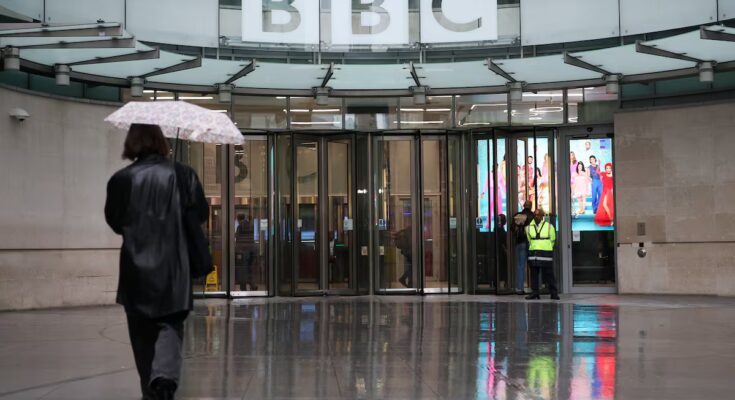The BBC is currently suffering from a serious crisis of credibility, caused by misleading editing of the programme. Panorama from part of Donald Trump’s speech on January 6, 2021, when hundreds of his followers violently stormed the Capitol. The public broadcaster has admitted an “error of judgement” which led to the resignations of its director general, Tim Davie, and the head of its news division, Deborah Turness. For its detractors and enemies, who are many on the political and media right in the United Kingdom, the editorial clumsiness of the documentary, broadcast more than a year ago, is in reality the demonstration of an ideological prejudice that extends to other journalistic coverage, such as that of the invasion of Gaza or the trans movement.
It is neither the first serious crisis for the BBC, nor the first time it has led to the resignation of its top management. The public body is one of the most respected institutions inside and outside the United Kingdom, and each of its failures triggers attacks, sometimes excessive, from its critics and acts of contrition and exemplification. The merit of a media organization is manifested in the immediate recognition of its errors and their correction. Even if it sometimes did so inexplicably late, the British entity always ended up correcting its mistakes.
The confrontation with Trump, however, has acquired a dimension that transcends the British sphere. The American president used the same criminal strategy with all the media he found uncomfortable, to whom he filed complaint after complaint to obtain their surrender, as happened with the ABC or CBS networks.
On this occasion, Trump extended his intimidating ways to the other side of the Atlantic, towards an institution that for many citizens around the world represents, with its errors, a bastion of serious and rigorous journalism, defender of rights and freedoms, whose primacy has been more than proven from the Second World War to the years of the Cold War. The BBC is the retaining wall against the false, disorderly and chaotic information that proliferates on social networks, from which authoritarian politicians such as the American one have benefited.
The public broadcaster apologized to the president and removed the controversial documentary from its platforms. But he also made it clear that he does not intend to accept Trump’s request to compensate him with financial compensation. And there are many defenders of the company who think it is under a coordinated political attack between its internal enemies and the White House. Keir Starmer’s Labor government must demonstrate that it stands for the right to information in the face of abuses of power and support the BBC.



